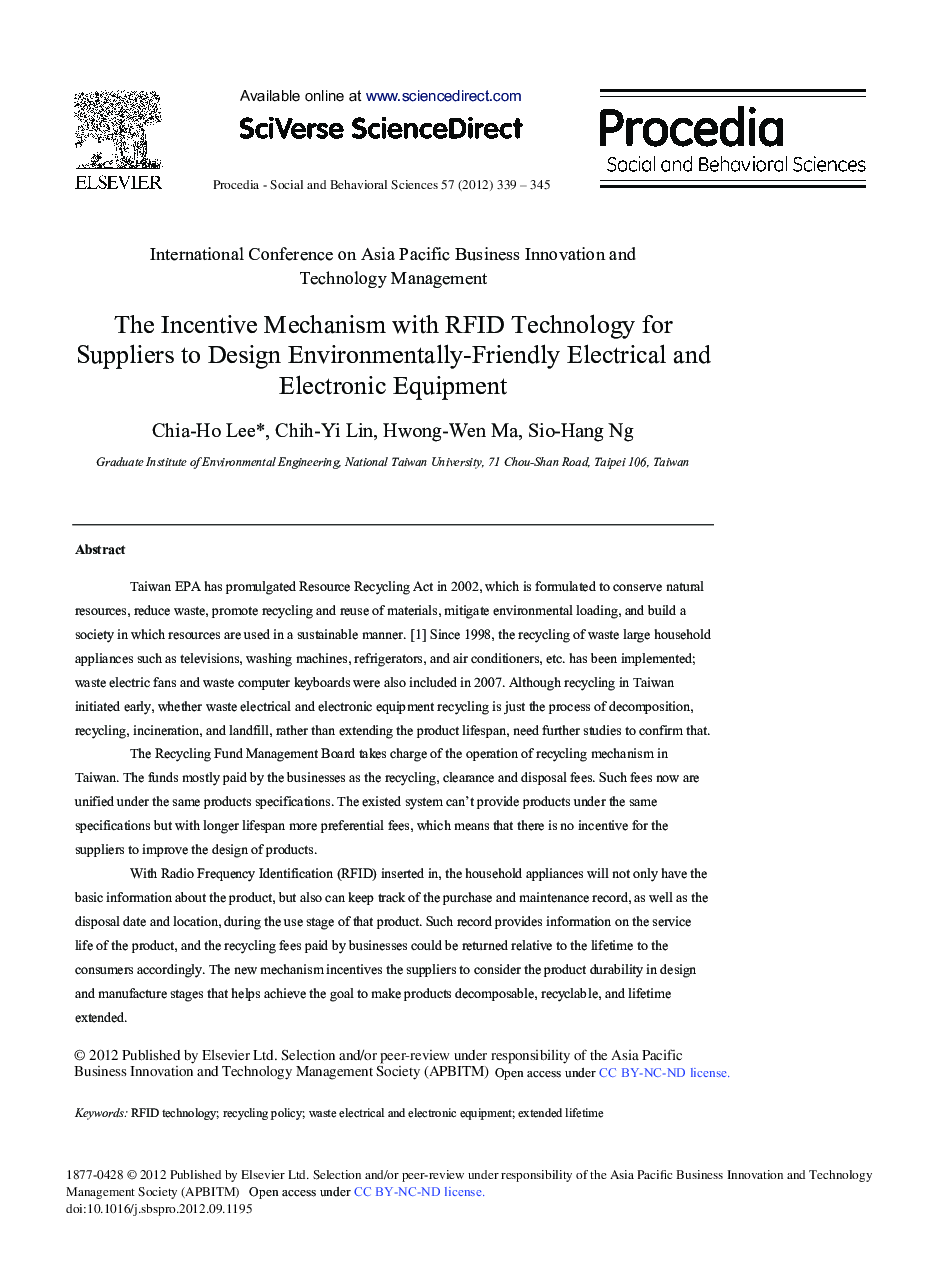| Article ID | Journal | Published Year | Pages | File Type |
|---|---|---|---|---|
| 1120901 | Procedia - Social and Behavioral Sciences | 2012 | 7 Pages |
Taiwan EPA has promulgated Resource Recycling Act in 2002, which is formulated to conserve natural resources, reduce waste, promote recycling and reuse of materials, mitigate environmental loading, and build a society in which resources are used in a sustainable manner. [1] Since 1998, the recycling of waste large household appliances such as televisions, washing machines, refrigerators, and air conditioners, etc. has been implemented; waste electric fans and waste computer keyboards were also included in 2007. Although recycling in Taiwan initiated early, whether waste electrical and electronic equipment recycling is just the process of decomposition, recycling, incineration, and landfill, rather than extending the product lifespan, need further studies to confirm that.The Recycling Fund Management Board takes charge of the operation of recycling mechanism in Taiwan. The funds mostly paid by the businesses as the recycling, clearance and disposal fees. Such fees now are unified under the same products specifications. The existed system can’t provide products under the same specifications but with longer lifespan more preferential fees, which means that there is no incentive for the suppliers to improve the design of products.With Radio Frequency Identification (RFID) inserted in, the household appliances will not only have the basic information about the product, but also can keep track of the purchase and maintenance record, as well as the disposal date and location, during the use stage of that product. Such record provides information on the service life of the product, and the recycling fees paid by businesses could be returned relative to the lifetime to the consumers accordingly. The new mechanism incentives the suppliers to consider the product durability in design and manufacture stages that helps achieve the goal to make products decomposable, recyclable, and lifetime extended.
